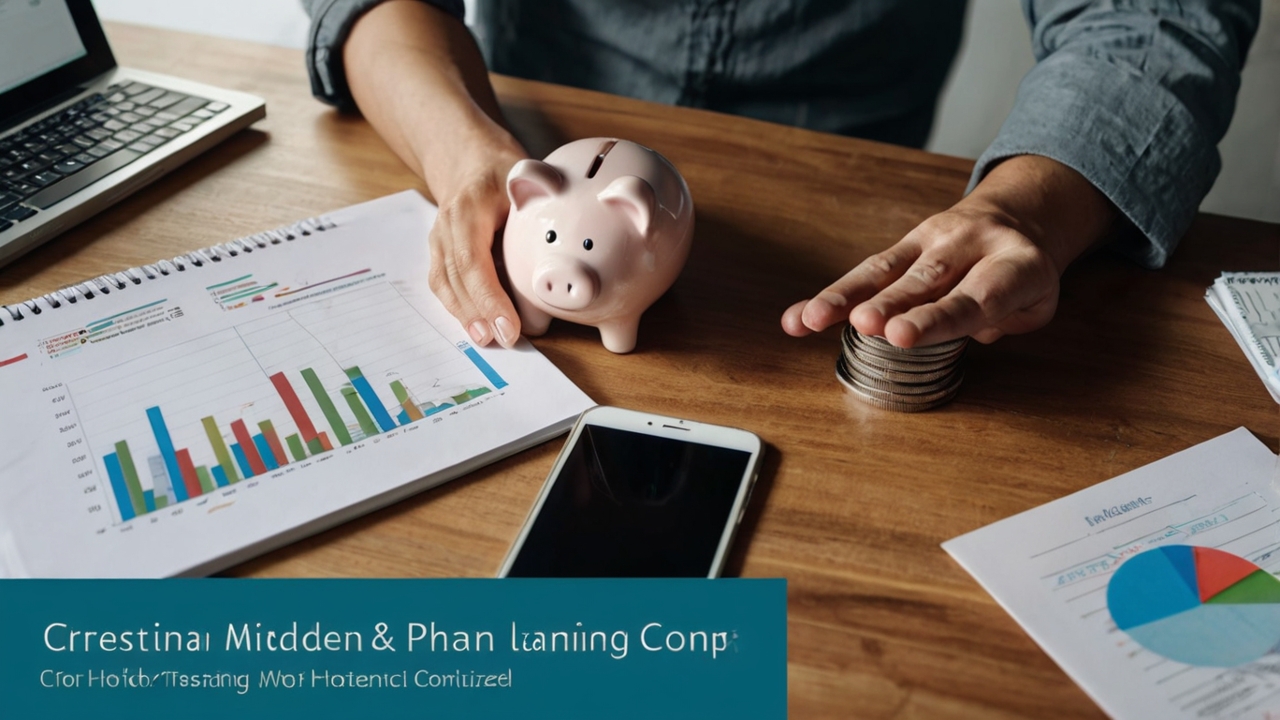The Impossible Balance: How to Save and Pay Off Debt Simultaneously
Living with debt while trying to save can feel like an impossible task for many. The feeling of being overwhelmed by accumulating bills, combined with the desire to build a secure financial future, can be extremely frustrating. However, with proper planning, discipline, and smart strategies, you can achieve a balance between paying off debt and building your savings.
Chapter 1: Understanding Your Current Financial Situation
The first step towards achieving any financial goal is understanding your current situation. This means tracking your income and expenses, calculating your total debt, and assessing your assets.
- Track Income and Expenses: Use a budgeting app, spreadsheet, or even a simple notebook to record every penny you earn and every penny you spend.
- Calculate Total Debt: List all your debts, including credit cards, personal loans, car loans, and mortgages. Record the outstanding amount, interest rate, and minimum payment for each debt.
- Assess Assets: Evaluate all your assets, such as savings accounts, investments, and real estate.
Once you have a clear picture of your financial situation, you can start developing a plan to pay off debt and save.
Chapter 2: Creating a Realistic Budget
A budget is the foundation of any successful financial plan. Your budget should reflect your income and expenses and prioritize your financial goals.
- Define Your Financial Goals: What do you want to achieve? Do you want to pay off your debts quickly? Do you want to buy a house? Do you want to retire early?
- Allocate Funds for Debt Repayment: Allocate as much money as possible to debt repayment, considering the minimum required payments.
- Allocate Funds for Saving: Even if it's a small amount, start saving regularly.
- Reduce Unnecessary Expenses: Look for ways to cut unnecessary expenses, such as dining out, entertainment, and unused subscriptions.
Example: Let's say your net monthly income is $3,000. You can allocate $1,000 to debt repayment, $300 to savings, and $1,700 to other expenses.
Chapter 3: Effective Debt Repayment Strategies
There are several strategies you can use to pay off your debts. Some common strategies include:
- Snowball Method: Start by paying off the smallest debt first, regardless of the interest rate. Once the smallest debt is paid off, move on to the next smallest debt, and so on.
- Avalanche Method: Start by paying off the debt with the highest interest rate first. This will save you money in the long run.
- Debt Consolidation: Consolidate all your debts into one loan with a lower interest rate.
- Credit Card Balance Transfers: Transfer high-interest credit card balances to cards with lower interest rates.
Tip: Use an online debt repayment calculator to compare different strategies and determine the best one for you.
Chapter 4: Building an Emergency Fund
An emergency fund is a savings account dedicated to covering unexpected expenses, such as job loss, home repairs, or medical bills. It is recommended to save at least 3-6 months of living expenses in an emergency fund.
Why is an Emergency Fund Important?
- Prevents you from relying on credit cards or loans in emergencies.
- Reduces stress and anxiety about money.
- Provides financial security.
Tip: Start by saving a small amount each month, even if it's $50 or $100. Over time, your savings will grow.
Chapter 5: Increasing Your Income
If you're struggling to pay off debt and save, consider increasing your income. There are many ways to increase your income, including:
- Getting a Part-Time Job: Look for a part-time job in the evening or on weekends.
- Freelancing: Offer your services as a freelancer in your field of expertise.
- Selling Unused Items: Sell items you no longer use online or at a flea market.
- Investing Your Money: Start investing your money in stocks, bonds, or real estate.
Example: You can offer online tutoring, write content for websites, or design websites.
Chapter 6: Negotiating with Creditors
If you are having difficulty paying your debts, consider negotiating with creditors. They may be willing to lower the interest rate, extend the repayment period, or even settle the debt for a lower amount.
Tip: Be prepared to provide proof of your financial difficulties. Be polite and professional in your dealings with creditors.
Chapter 7: Avoiding Getting into Debt Again
Once you pay off your debts, it is important to take steps to avoid getting into debt again. This means:
- Living Within Your Means: Don't spend more than you earn.
- Using Credit Cards Cautiously: Pay your balance in full each month to avoid interest charges.
- Planning for the Future: Develop a long-term financial plan and allocate funds for retirement and investments.
Chapter 8: Investing for the Future
After building an emergency fund and paying off debts, it's time to focus on investing for the future. Investing allows your money to grow over time, helping you achieve your long-term financial goals.
Investment Options:
- Stocks: Represent ownership in a company. Can be very profitable, but also risky.
- Bonds: Represent a loan you make to the government or a company. Less risky than stocks, but also less profitable.
- Real Estate: Can be a good long-term investment, but requires significant capital.
- Mutual Funds: Pool money from many investors to buy a diverse portfolio of stocks and bonds.
Tip: Consult a financial advisor to help you choose the right investments for your goals and risk tolerance.
Chapter 9: The Importance of Financial Literacy
Financial literacy is the key to achieving financial success. The more you know about money, the better equipped you will be to make informed financial decisions.
Sources of Financial Literacy:
- Books and Articles: Read books and articles on personal finance and investing.
- Training Courses: Enroll in online or local college courses.
- Financial Advisors: Consult a financial advisor for personalized advice.
Chapter 10: Perseverance and Patience
Paying off debt and saving takes time and effort. Don't be discouraged if you don't see immediate results. Be persistent and patient, and you will eventually reach your financial goals.
"Success is not final, failure is not fatal: It is the courage to continue that counts." - Winston Churchill
By following these strategies, you can achieve a balance between paying off debt and building a secure financial future.




